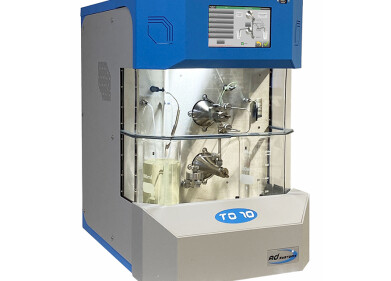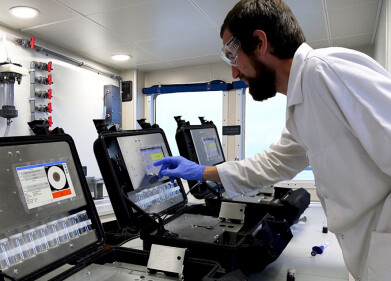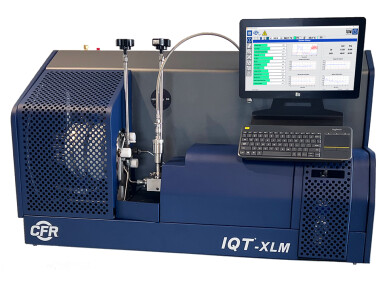Fuel analysis
New Application Reports for Reliable Biofuels Testing
Sep 08 2008
Spectro (Germany) has developed new applications for the elemental analysis of biofuels that are now available for the Spectro Phoenix II and Spectro iQ II XRF instruments and for the Spectro Genesis and Spectro Arcos ICP-OES instruments. Drawing on years of practical experience analyzing conventional fuels, Spectro has offers a comprehensive information package for analyzing bio-fuels available on their website; www.spectro.com
New application reports document continuous monitoring of the quality of bio-fuels with the four Spectro instruments, while remaining in compliance with the relevant fuel regulations and specifications. Visitors to the site also will find a new online brochure with information dealing with current fuel legislation.
“Within the framework of climate protection, biofuels are receiving a great deal of attention as well as political backing. In many industrial nations, laws facilitating the use of alternatives to gasoline and diesel are under consideration or already in place,†explains Dirk Wissmann, Product Manager for X-ray fluorescence analysis at Spectro. “The European Union is leading the way: Their 2003/30/CE directive compels fuel manufacturers to increase the share of bio-fuels on the fuel market from today`s 2 percent to 5.75 percent by 2010.â€
Before manufacturers or suppliers bring large amounts of biofuels onto the free-market, analytical procedures for the continuous monitoring of their contents need to be well defined. Bio-gasolines from sugar cane and biodiesels from palm, rapeseed and coconut are considered to be ecologically harmless. Their bio components contain no harmful
materials, such as benzene and toluene, and produce little damaging emissions.
Although Bio-gasolines are currently used as fuel extenders for upwards of 10% of regular fuels, these fuels may contain sulphur--an element for which strict limiting values in fuels are in effect worldwide that needs to be closely monitored. In addition, vegetable oils contain phosphorous in the form of phospholipids, which in higher concentrations may lead to the formation of abrasive deposits that can cause engine damage. High concentrations of alkali and alkaline earth elements, including sodium, potassium, magnesium and calcium, also can lead to corrosion damage in filters and fuel injectors. For these reasons, limiting values have been defined for the above named elements in biodiesel, and limiting values have been set for chlorine, copper and lead as well in bioethanol and bioethanol-gasoline mixtures.
The Spectro iQ II and Spectro Phoenix II XRF instruments are well suited to measurement of sulfur content. The Spectro iQ II also can be used to screen for phosphorous, potassium, calcium, copper and lead. The Spectro Arcos and Spectro Genesis ICP-OES instruments are capable of monitoring relevant limiting values for all of the above.
A new brochure in which the current legal situation is discussed also is available free-of-charge for download in addition to many application reports.
Digital Edition
PIN 25.6 Buyers' Guide
January 2025
Buyers' Guide Directory - Product Listings by Category - Suppliers Listings (A-Z) Articles Analytical Instrumentation - ASTM D7042: The Quantum Leap in Viscosity Testing Technology -...
View all digital editions
Events
Jan 20 2025 San Diego, CA, USA
Jan 22 2025 Tokyo, Japan
Jan 25 2025 San Diego, CA, USA
SPE Hydraulic Fracturing Technology Conference and Exhibition
Feb 04 2025 The Woodlands, TX, USA
Feb 05 2025 Guangzhou, China



















